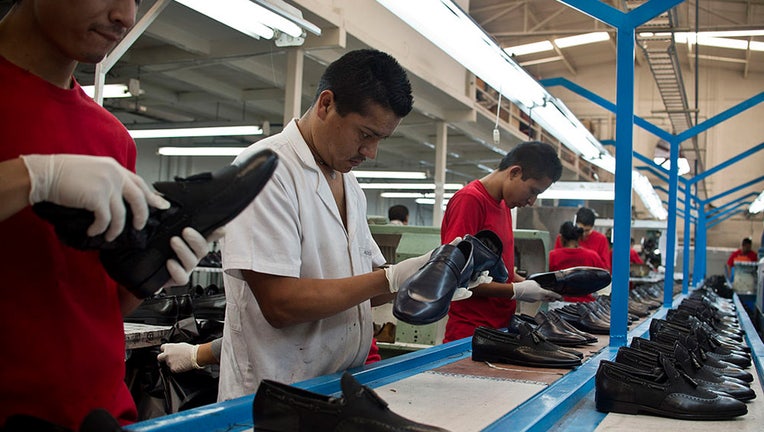US buys more from Mexico than China; 1st time in over 2 decades

FILE - People work in the factory where the shoes given to Pope Benedicto XVI during his 2012 visit to Mexcio were made, in Leon, Guanajuato State, on March 1, 2013.
Mexico surpassed China as the leading source of goods imported into the United States last year – the first time in over two decades.
The U.S. Commerce Department released a report on Wednesday that showed goods imported from Mexico into the U.S. increased nearly 5% between 2022 and 2023. The cost of goods amounted to over $475 billion.
During the same period, China’s imports into the U.S. plummeted 20% to $427 billion.
The last time that Mexican goods imported by the United States exceeded the value of China's imports was in 2002.
US-China relations
Economic relations between the U.S. and China have severely deteriorated in recent years as Beijing has fought aggressively on trade and made ominous military gestures in the Far East.
The Trump administration began imposing tariffs on Chinese imports in 2018, arguing that Beijing's trade practices violated global trade rules. President Joe Biden retained those tariffs after taking office in 2021, making clear that antagonism toward China would be a rare area of common ground for Democrats and Republicans.
As an alternative to offshoring production to China, which U.S. corporations had long engaged in, the Biden administration has urged companies to seek suppliers in allied countries ("friend-shoring'') or to return manufacturing to the U.S. ("reshoring''). Supply-chain disruptions related to the COVID-19 pandemic also led U.S. companies to seek supplies closer to the U.S. ("near-shoring'').
Impact on U.S.-Mexico border disputes
Mexico has been among the beneficiaries of the growing shift away from reliance on Chinese factories. But the picture is more complicated than it might seem.
Some Chinese manufacturers have established factories in Mexico to exploit the benefits of the 3-year-old U.S.-Mexico-Canada Trade Agreement, which allows for duty-free trade in North America for many products.
Mexican President Andrés Manuel López Obrador said that the trade status gives Mexico new leverage, saying it would make it hard for the U.S. to close the two countries’ border to limit immigration, as suggested in negotiations on a border bill in the U.S. Senate.
"The negotiation is proposing closing the border," he said. "Do you think Americans, or Mexicans, but especially the Americans, would approve that? The businesses wouldn’t take it, maybe one day, but not a week."
Some industries — especially auto manufacturers — have set up plants on both sides of the border that depend on each for a steady supply of parts.
Overall, the U.S. deficit in the trade of goods with the rest of the world — the gap between the value of what the United States sells and what it buys abroad — narrowed 10% last year to $1.06 trillion.
The Associated Press contributed to this report. This story was reported from Los Angeles.

